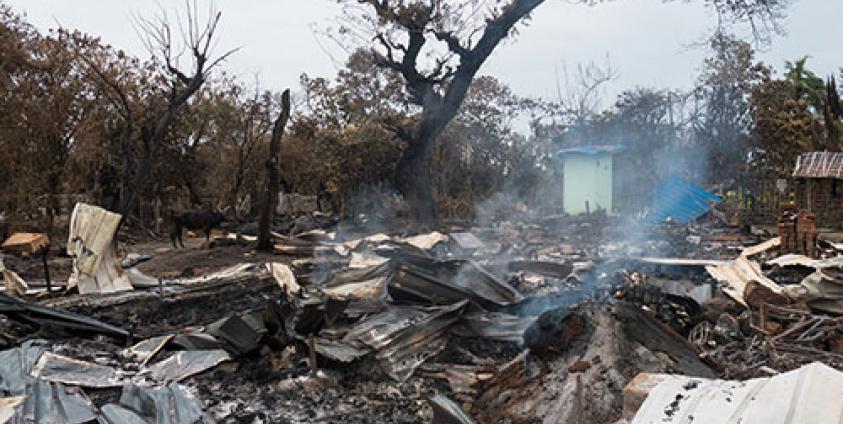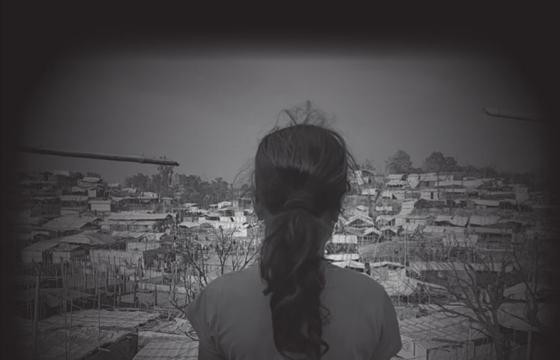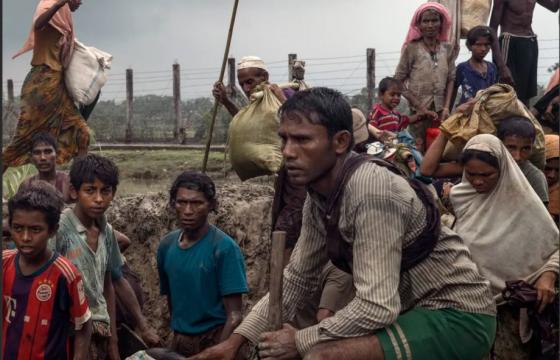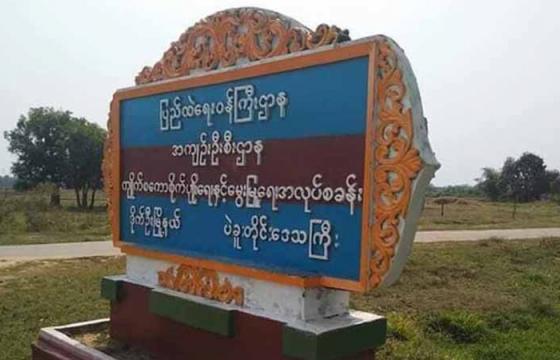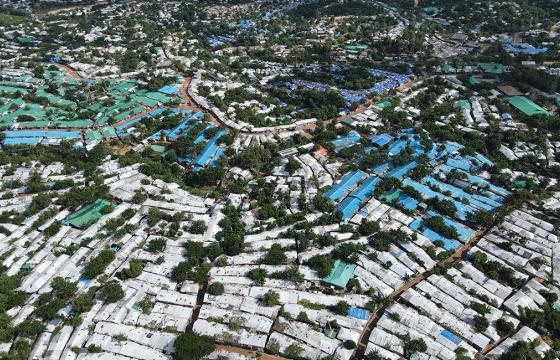December 16, Rohingya victims of Burma’s genocidal operations in Maungdaw, Arakan State, filed an official complaint to the Organization for Economic Cooperation and Development (OECD) on violations of its investment guidelines by Norway’s state-owned Telenor company, demanding an independent investigation into the use of Telenor infrastructure by Burmese security forces to carry out atrocities against Rohingya.
The victims, from Alethankyaw in southern Maungdaw township, allege that security forces used a Telenor cellular network tower to shoot at fleeing Rohingya men, women and children as they tried to escape the village during the last week of August 2017.
The high tower platform provided the Burmese forces with a unique strategic location to shoot at and terrorize Rohingya villagers in a wide radius in the sprawling village. Over a hundred Alethankyaw residents were killed during the operation.
The complainants, under the name Committee Seeking Justice for Alethankyaw (CSJA), are accusing Telenor of failing to carry out due diligence before expanding into northern Arakan, despite clear risks of complicity in the unfolding genocide against the Rohingya.
“As Telenor has been active in Myanmar since at least June 2013, its staff and senior management, which includes a former Norwegian ambassador to Myanmar Katja Nordgaard, could not possibly be unaware of the long standing apartheid-like policies and official discrimination directed at the Rohingya community as part of its campaign of genocide,” stated Ramat Ullah of CSJA.
After Kaladan Press documented the use of the Telenor tower by Burmese military snipers in its report “The Killing Fields of Alethankyaw” in November 2018, Telenor issued a statement expressing concern over the allegations, but denied responsibility – saying their personnel were not present in August 2017 -- and have simply called for the Burmese authorities to investigate the incident.
In fact, Telenor had pulled out its personnel from Alethankyaw once before, prior to the October 2016 “clearance operations,” when atrocities by the government security forces drove out an estimated 100,000 Rohingya into Bangladesh.
“Therefore Telenor already knew the risks of the military buildup before the August 2017 “clearance operations,” and the strong likelihood there would be further large scale atrocities against the Rohingya,” stated Ramat Ullah of CSJA. “Thus Telenor bears significant responsibility for what took place on its tower.”
The testimonies of the Alethankyaw victims have been cited by the UN Special Rapporteur for Human Rights in Myanmar, Yanghee Lee, whose March 2019 report stated that the “alleged use of the towers by snipers highlights the paramount importance of thorough and ongoing human rights due diligence being undertaken by companies and investors”.
CSJA’s complaint also raises questions about the role of Telenor’s telecommunication business partners in the Alethankyaw tower operation, including Irrawaddy Green Towers, whose investors include the governments of the UK, France, The Netherlands, Austria, Germany and Belgium as well as the World Banks’ private sector arm, the IFC - The International Finance Corporation.
OECD is a forum of 36 member states with market economies. The OECD Guidelines for Multinational Enterprises provides principles for responsible business conduct in a global context consistent with applicable laws and internationally recognised standards.

